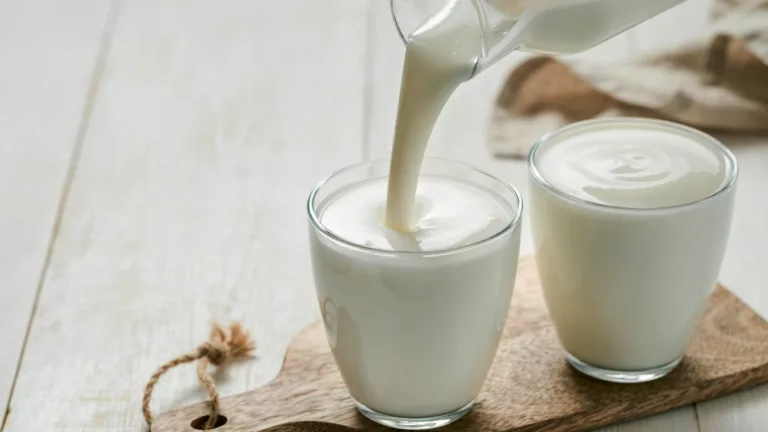Can Cucumbers Help GERD Symptoms? – A Comprehensive Guide
If you suffer from GERD (gastroesophageal reflux disease), you’re likely no stranger to heartburn, regurgitation, and other uncomfortable symptoms. But did you know that cucumbers might help ease some of these symptoms? In this article, we’ll explore whether cucumbers can help manage GERD, how they benefit digestion, and the best ways to include them in your diet.
Managing GERD symptoms can be a challenge, especially when it feels like almost every meal can trigger heartburn or discomfort. But with the right foods, it’s possible to ease some of those symptoms naturally. Cucumbers, known for their cooling, hydrating properties, might just be a helpful ally in managing GERD. 
What is GERD and How Does It Affect the Body?
Before diving into cucumbers, let’s briefly go over what GERD is and how it impacts your digestive system. GERD occurs when the lower esophageal sphincter (LES) weakens or relaxes too much, allowing stomach acid to flow back into the esophagus. This acid reflux causes the painful symptoms associated with GERD, like heartburn, chest pain, and regurgitation. While medication can help, lifestyle and dietary changes are often recommended to manage symptoms. Certain foods can aggravate GERD, while others might offer relief. So, does cucumber make the list of helpful foods? Let’s find out. 
Can Cucumbers Help GERD Symptoms?
The short answer is yes—cucumbers can help with GERD symptoms in several ways. Here’s how they may support digestion and reduce discomfort:
1. Low Acid Content
Cucumbers are incredibly low in acid, making them a gentle option for people suffering from acid reflux or GERD. High-acid foods, such as citrus fruits and tomatoes, are often triggers for GERD symptoms. Cucumbers, on the other hand, are considered alkaline, which helps to balance the acidity in the stomach and reduce the likelihood of reflux.
2. Hydration Benefits
Cucumbers are made up of about 95% water, which makes them one of the most hydrating vegetables you can eat. Staying hydrated is crucial for managing GERD, as dehydration can exacerbate symptoms like heartburn. By helping you stay hydrated, cucumbers may indirectly support overall digestive function and reduce the intensity of GERD symptoms.
3. Soothing Properties
The cool, crisp nature of cucumbers makes them a great choice for soothing the digestive tract. This cooling effect can help calm the lining of the esophagus, providing temporary relief from the irritation caused by acid reflux. This could be especially helpful after a meal that might have triggered mild acid reflux. 
4. Fiber Content
Cucumbers are a good source of fiber, which is essential for healthy digestion. Fiber helps move food through the digestive system smoothly and prevents constipation, which can be a trigger for acid reflux in some individuals. While cucumbers aren’t the highest in fiber compared to other vegetables, their fiber content, combined with their high water content, can promote regularity and reduce digestive discomfort.
5. Promoting Overall Digestive Health
In addition to being hydrating and low in acid, cucumbers contain antioxidants, vitamins, and minerals that support overall digestive health. Vitamin K, potassium, and magnesium in cucumbers play roles in keeping your digestive system running smoothly, which is beneficial for anyone dealing with GERD.
How to Incorporate Cucumbers into Your GERD-Friendly Diet
If you’re looking to add cucumbers to your diet to help with GERD symptoms, here are some easy ways to do so:
1. Cucumber Salad
A simple cucumber salad with a mild dressing (like olive oil, lemon juice, and a pinch of salt) is an excellent way to enjoy cucumbers while keeping your GERD-friendly diet intact. Avoid using vinegar-based dressings, as vinegar can be acidic and may trigger symptoms in some people.
2. Cucumber Slices as a Snack
Cucumbers are naturally low-calorie and can make for a refreshing snack. Slice them up and enjoy them on their own, or pair them with a mild dip like hummus. It’s a great, GERD-friendly snack that hydrates and soothes at the same time.
3. Infused Water
If you’re looking for a creative way to increase your cucumber intake, try cucumber-infused water. Simply add slices of cucumber to a glass of water and let it sit for a few hours. This adds a refreshing flavor while helping you stay hydrated, a key factor in managing GERD symptoms.
4. Cucumber and Avocado Wrap
For a light, filling meal, try a cucumber and avocado wrap. Use a whole wheat or gluten-free wrap and layer on slices of cucumber, mashed avocado, and some fresh herbs. Avocado is also a GERD-friendly food and pairs well with the cooling effect of cucumbers. 
What to Keep in Mind When Eating Cucumbers for GERD
While cucumbers are generally safe and beneficial for people with GERD, there are a few things to keep in mind:
- Cucumber Skin: Some people find cucumber skin difficult to digest, especially if they have sensitive stomachs. If you experience discomfort after eating cucumbers with skin, consider peeling them before eating.
- Portion Control: Eating large quantities of cucumbers (or any food) can lead to bloating and digestive issues. Start with small portions and see how your body reacts.
- Combine with Other GERD-Friendly Foods: Cucumbers work best when paired with other low-acid, soothing foods. A well-rounded GERD-friendly diet can include cucumbers, bananas, oatmeal, and lean proteins.
Are There Any Risks?
For most people, cucumbers are a safe and beneficial food to include in their GERD-friendly diet. However, everyone’s body is different. If you find that cucumbers cause discomfort or exacerbate your symptoms, it’s important to listen to your body and adjust your diet accordingly.
Conclusion
Cucumbers are a fantastic addition to a GERD-friendly diet. With their low acid content, hydrating properties, and soothing effects, they can help manage GERD symptoms naturally. Whether you enjoy them in salads, as snacks, or in water, cucumbers can play a helpful role in supporting digestive health. However, as with any food, it’s essential to pay attention to how your body reacts and make adjustments as needed.

Tarra Nugroho is a dedicated Nurse Practitioner with a strong foundation in family and preventive care. She brings both compassion and clinical expertise to her practice, focusing on patient-centered care and health education. As a contributor to Healthusias.com, Tarra translates medical knowledge into clear, empowering articles on topics like women’s health, chronic disease management, and lifestyle medicine. Her mission is simple: help people feel seen, heard, and informed—both in the clinic and through the content she creates. When she’s not caring for patients, Tarra enjoys weekend hikes, plant-based cooking, and curling up with a good health podcast.







